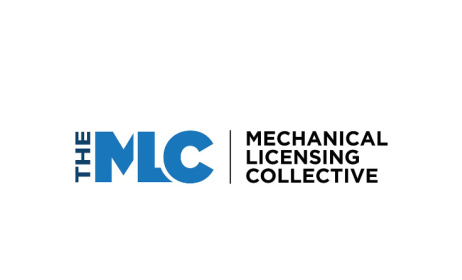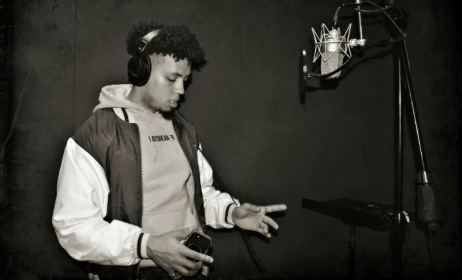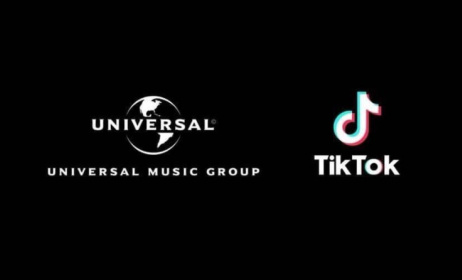Copyright, royalties and piracy in Sierra Leone
This overview will discuss the provisions created by the new Act, and consider to what extent it has been implemented in Sierra Leone.
 Sierra Leonean pop musician Emmerson. Photo: Salone Jamboree
Sierra Leonean pop musician Emmerson. Photo: Salone Jamboree
Background
A new copyright Act was passed in parliament on 13 July 2011, in Sierra Leone, signalling the repeal of the Copyright Act 1965. The Act was signed into law on 29 July 2011, by President Dr Ernest Bai Koroma. It signalled a new dawn for recording artists in Sierra Leone.
The original Copyright Act had been in the law books of Sierra Leone since 1965. It was outdated in several aspects.
Firstly, it could not be implemented properly because fines for copyright infringement, for instance, were set in the outdated currency of Shillings and pence. The legal tender in Sierra Leone is the Leone, and has been since 4 August 1964. The Leone replaced the British West African pound at a rate of 1 Pound, which at the time, equated to 2 Leones or 5 Shillings.
Secondly, and very important in today’s world, the Copyright Act of 1965 did not address challenges presented by new media, such as online distribution of music.
Introduction
The new Copyright Act delivers protection for authors, co-authors and joint authors, across a whole range of works, such as, literary, artistic works, musical works, sound recordings, audiovisual works, and even choreographic works. Works offered protection must be affixed in any definite medium of expression now known or later to be developed with the result that the work can either directly or with the aid of any machine or device be perceived, reproduced or otherwise communicated.
For protection to be granted, the works must be created by a citizen of Sierra Leone or a person who is ordinarily resident in Sierra Leone or by a body corporate. The Act also made it clear that works should be first published in Sierra Leone; or in the case of a work first published outside Sierra Leone, is subsequently published in Sierra Leone within thirty days of its publication outside Sierra Leone.
The Act offers obligatory protection for a work under international treaties that Sierra Leone is party to. These include works produced by the United Nations or any of its Specialised Agencies; by the African Union; or by the Economic Community of West African States (ECOWAS).
The primary oversight of the Copyright Act rests with the Minister of Trade, who can, by statutory instrument, make regulations for, the registration and deposit of works, the levy payable on technical devices used for copyright materials and the form and scope of contracts and licences relating to publishing, performing, sound recording and audiovisual productions.
Types of protection
The Act offers criminal and civil protections. However, the private reproduction of a published work in a single copy is permitted without the authorization of the author or other owner of copyright, where the reproduction is made by an individual exclusively for his own personal purposes. Where reproduction is prohibited because of the singular nature of the creation, such as with unique buildings, the Act is explicit.
Authors, performers and the producers of sound recordings and other copyright works are entitled to royalties under the Act, as well as, owners of mechanical rights who are entitled to collect royalties for the live public performance of their copyright work or for the recorded public performance of their copyright work at a public place. However, the Act does not state the amount of royalties to be paid to rights owners.
Duration of copyright
The Act explicitly states that, rights expressed in the document are perpetual, inalienable and imprescriptible, meaning that, such rights cannot be revoked by prescription or by lapse of time.
In essence, the economic and moral rights of an author are now protected for the duration of the life of the author and for fifty years after his death. Additionally, moral rights do not expire and exist in perpetuity. All these rights are enforceable by the author's successors whether or not the economic rights vested in the author under this Act are still vested in the author or the successor-in-title of the author.
The Act is retroactive in that, it applies to works, performances, sound recording, and broadcasts, existing before the date of the coming into operation of the Act, and after that, provided that the terms of protection had not expired under the former enactment or under the enactment of the country of origin of the works, performances, sound recording or broadcast that are to be protected under an international treaty to which Sierra Leone is a party.
Collecting society
The Act makes provisions for a Collecting Society, which should be a non-profit making entity. Its primary duty is to collect and distribute royalties and other remuneration accruing to the registered members. In this regard, the onus is on the owner of a copyright to inform the Registrar and Collecting Society.
The Society is run administratively by a Board, which is chaired by the President of the General Assembly of the Society. Among other members there shall be two persons nominated by the Musicians Union of Sierra Leone, one being music producer nominated by the Sierra Leone Association of Music Producers.
Copyright infringement
The act punishes copyright infringement by fines and imprisonment, but these vary by sector. Contravention of the copyright prescriptions results in the person(s) committing an offence and is liable on conviction to a fine not exceeding sixty million Leones (approximately $9,000), or to imprisonment for a term not exceeding three years or to both the fine and imprisonment.
The Act does not only offer protection to Sierra Leone based rights owners, but addresses the importation of anti-piracy devices, so both seller and reproducers of copyright material are punished.
The Act states that, a person who, without the permission of the Registrar, imports into or exports out of Sierra Leone; or possesses an anti-piracy device or equipment intended for use in the production of an anti-piracy device, commits an offence and is liable on conviction to a fine not exceeding sixty million Leones (approximately $9,000), or to imprisonment for a term not exceeding three years or to both the fine and imprisonment.
As at October 2017, no Registrar had been appointed, and the Collecting Society has not been established. This is even though an Interim Copyright Act Implementation team was established back in 2011 by President Koroma.
The absence of the two key offices means that, intellectual property rights owners currently make individual arrangements with independent distributors with regards to the distribution of their products and the royalty payments received. The current Act does not specify the amounts and frequency of royalty payments, hence, the operating environment can be described as, ad hoc, at best.
Copyright today
Notwithstanding the clear provisions in the Copyright Act 2011, not a single case of piracy or other infringement of intellectual property rights has been taken to court in Sierra Leone since 2011. Additionally, there is no credible evidence to show that any rights holder has successfully claimed compensation through an out of court settlement for copyright infringement, since the new act was passed into law.
Piracy is still rife in Sierra Leone as a result. Local rights owners do not enforce their rights and the government of Sierra Leone does not enforce the rights of international rights owners. In essence, both local and foreign music, films and books, continue to be distributed illegally.
General elections are imminent in Sierra Leone, scheduled for March 2018. This time period always increases the influence of musicians. This may present an opportunity for copyright holders such as recording artists, to demand the establishment of the Collecting Society and the appointment of a Registrar.
Conclusion
In conclusion, the owner of a right protected under the Copyright Act 2011, is entitled to payment, by the defendant for damages suffered. Expenses caused by the infringement, including legal costs, should be borne by the infringer(s).
However, given that protection is guaranteed upon registration of an affixed product with the Registrar, his continued absence means that, one cannot legally present a claim against infringement, if the letter of the law is to be followed.
The collection of royalties continues to be unregulated, without a Collecting Society leaving room for further exploitation of recording artists.
The new Act ensures that, the owner of a copyright may transfer the economic rights to a third party either in whole or in part, so intellectual property can be willed to relatives and friends, who can continue to enjoy the rewards from copyright protection. The Act explicitly states that, rights expressed in the document cannot be revoked by prescription or by lapse of time. The Copyright Act 2011 represents a new dawn for the music industry in Sierra Leone, but implementation still leaves much to be desired.
References
1. Sierra Leone Copyright Act 2011, (29th July 2011) GoSL Printers
2. Wikipedia (2017) Sierra Leone: Leone, [Online] Available at: https://en.wikipedia.org/wiki/Sierra_Leonean_leone [Accessed on 13th October, 2017]






























Comments
Log in or register to post comments